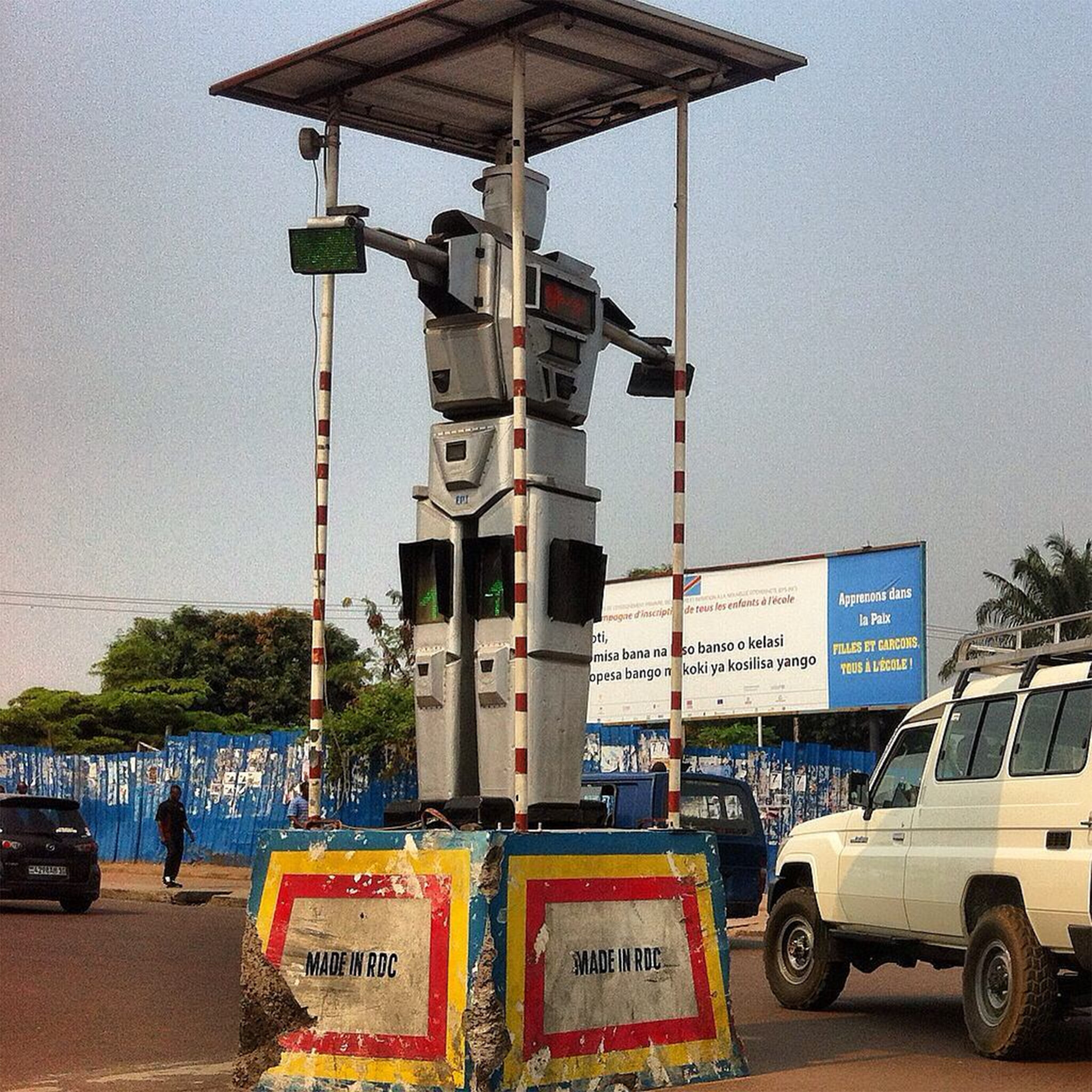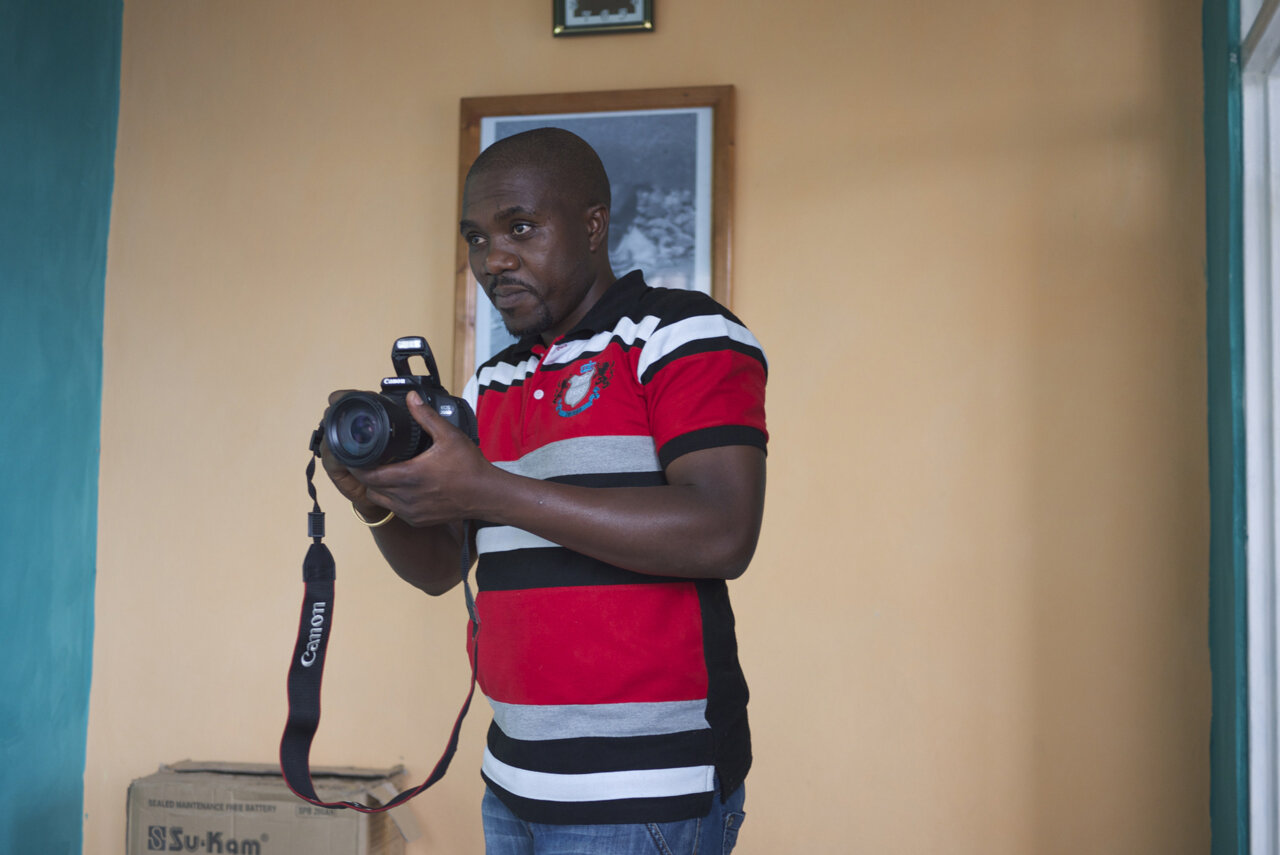The Story Of Complexity
Episode 1
“Social business brings value in this society, (…) because it is really touching the daily life of each one in the community.”
Patrick Byamungu
In the first episode, we meet Patrick Byamungu and Mike Beeston, both founders of the Eastern Congo-based accelerator Ensemble Pour La Difference. After working as a journalist for eight years, Patrick became tired of re-telling the same story. The story of emergency relief without lasting change. He meets Mike, who has sold his global digital agency and wants to know whether his human-centred business techniques could be relevant for entrepreneurs in the DRC. Together they start an accelerator for for-profit, social-aware businesses and tell us about the complexity of the task ahead.
Transcript
This goal brought me into contact with Patrick and Mike Beeston, Patrick and Mike set up an organization in the Eastern Congo called Ensemble Pour La Différence. I heard that they were supporting existing local business owners of small and medium enterprises (otherwise known as SMEs). They provide support and training and their overall goal is to build an infrastructure, or ecosystem, of socially aware businesses.:
I wanted to speak to them and find out how they ended up doing what they do and what they are working to achieve. Knowing a little bit about the Congo. I wanted to know how their work was different from charities and NGOs. Are they just another NGO or is there something else to learn?
I remember that the idea with Mike, I meet with Mike Beeston, at this time, I was really making many reports, video reports because I have a background and, and a solid experience in making small films and, reporting.
So I have been doing that for a long time with local NGOs. And for me, I really didn't like to continue to work in this way, because for me it was like it had become more and more like a cycle of intervention of those NGOs.
Because all the time, when we have a problem in the region, we can see the NGOs come with a strategy and start to work with people locally there. They want just to solve the emergency problem. And once the emergency problem is solved, they leave for another region and the population who stayed there - when the project is finished - the same problem comes again.
And another NGO. I don't know if it's the same, who just changed the name and come, come two years after. I don't know if they do the same, but when another NGO comes again, they come to resolve the same problem. So this really makes me uncomfortable.
I didn't realize why all, with a lot of number of NGOs who are operating in the Eastern part, why they can not think in the best way to really help people and try to build a strong society
So for me, I think this is the first big difference: this way to create wealth in the community. And this wealth, small by small, this wealth will really make a difference in the whole of the economic system of the area, where social businesses are operating.
The second difference for me: it is the habit. You know, more and more the community receives grants, the community receives donations from the NGOs. More and more, they are thinking that life is easy. They are thinking that every time when I have a problem, I will just do nothing. I will just sit and say, okay, the UN has said I need this, or another ONG (NGO), I need this. No!
So this, I think this makes the population more poor than to push them to work themselves, to try to build something themselves and to grow as social businesses.
Mike has worked in Europe, setting up global businesses in the field of design and innovation. How does his business vision apply to the small and medium-sized enterprises in Eastern Congo?
And innovation is very... I mean, the Congolese are really innovative. I mean, just as a culture, naturally so born out of need and necessity. And that can be, in a way, it can be kind of channeled or given more facilitated, you might say, with these human centered design processes in order to break through the limitations of poverty and, and some of the things like education or taxation, or, you know, historic structures which have historically kind of kept things down. Innovation can help break through those and get to the other side in a more systematic way.
Are there local Eastern Congolese who are interested in this approach? And what is the criteria that attracts La Différence?
And they're wanting to put in place proper solutions: structured, sustainable. You know, solutions that make a difference.
That’s not to say that those people who are disconnected from that don’t want to do the same thing, but how we work with, with people that distance to travel can be quite great. It can be quite a long way to bring a farmer who has never been connected, who has never been exposed to business. Who's never really understood finance, for example, that's quite a long journey to travel, to get to a successful growing SME.
So, you might say it's easy, but I would actually say it's kind of more substantial if you can work with these younger entrepreneurs, if you like, and if you can help them help the country move forward.
So you have first to prove and to have this commitment and say, okay, I want to change my life.
We are essentially working with those kind of entrepreneurs who can be able to work on this level, personal level, community level to have this view or vision to change the whole of the community.
But also our focus is not on the early stage, because the early stage, we reserve this for incubators. We know that, we have confidence that the incubators can play, very well, this role, but we are working with those entrepreneurs, or those businesses who have one or two years of experience.
Why do they need support from La Difference? What's stopping them from achieving what they want on their own?
But also, on the other hand, the social entrepreneurs are playing really a huge role because you know, there are no jobs in Congo. 84% percent of people are jobless in Congo.
Yeah. So this mass of people, what do they do every day? It is those social companies who use this mass of people every day. The government is not able to create the jobs. The job is really insufficient. The only way to go is for people to go and work in those social businesses. So the social businesses, they are really playing the role which should really be played by the government.
So, the DRC sits in Sub-Saharan Africa. Under the equator, and it is the second biggest country in Africa.
It covers an expensive land that is bigger than Spain, France, Germany, Norway, and Sweden combined. It is bordered by nine countries. It has a population of over 90 million people with almost half of them living in the cities. There are 240 identified languages with a few national ones like French, Lingala and Swahili.
The Congo is home to a wide variety of wildlife and incredible biodiversity, a huge expense of rainforest. In fact, 18% of the planet's total is in that area. And a rich supply of minerals. Tin, tantalum, tungsten, cobalt that goes into your phone and computers as well as gold, diamonds and other precious materials.
An internet search will list the DRC as both the second poorest nation in the world with a GDP of $409 per person in 2017 and almost 60 million people living on less than 1,90 a day.
But it will also show up as the richest nation on earth, with untapped deposits of raw minerals worth $24 trillion dollars. The DRC is a country whose people have known almost two centuries of rapid change, conflict and intense political instability.
From colonization to independence, to military coups, regional civil wars. And throughout this time, continuous exploitation of its natural resources by foreign countries and global corporations.
As a consequence, a staggering amount of development aid has gone into the country, more than 100 billion dollars since 1980. With the largest-ever UN presence to protect civilians and yet, the average Congolese citizen has a lower standard of living than in 1980 and the war in the early 2000s led to the death of 5.5 million people. And the insecurity continues.
This is the context in which La Difference is operating. Every day. It shows a country that has had to be resilient, and it shows the particular difficulties of building a functioning and lasting economy in the Congo.
In Patrick's lifetime, a lot has changed.
So every, every time. Congo is like decreasing. The entrepreneur sector needs, really, to work in a peaceful region. Something which is making me happy is that DRC is really going in this way.
Two years ago we succeed to change the government without war and without many trouble. So, this makes me really confident.
The difficulty comes when your savings are running low and perhaps your family and friends have provided some support, but that's running low and it's proved more difficult to establish your product or service. And, you know, you're now facing issues to do with, I don't know, the dollar Congolese Franc exchange rate, but issues that you didn't foresee are now coming in and it's a real, real struggle.
If you somehow got through this difficult phase, I think people call it the pioneer gap, and you are a success. Now you can go to investors, or lenders. But so few get through that gap. That there aren’t that many who are engaging with these, let’s say, institutional investors.
The story of La Difference is the story of people in the Congo speaking up and saying that foreign aid isn’t working. According to the World Bank, small and medium sized enterprises are essential to poverty reduction and economic growth and the International Peace Institute says they can ‘make a powerful contribution to the ecosystem of peace’. What if the future of Congo lies not with development aid, but with conscious, socially aware entrepreneurs, then the question is: what do they need to get it right?
Thanks to the help of Armant Chako, project director with La Difference, who became our journalist in the field, local entrepreneurs: Douce Namwezi, Washikala Malango and Chance Rwezi told us about their personal experience of life and setting up a social business in Eastern Congo.
And together with Patrick and Mike, they will show us how they deal with the issues of changing mindsets, ongoing corruption, leadership gaps, and how they are doing the long work of building a nurturing business environment that supports innovation.
Music Credits
Rail On - Papa Wemba // La Jolie Bebe - Docteur Nico & l’Africain Fiesta // Fabrice - Franco // Lobo Loco - Midsummer Meadow Party // Louise Marie Wa Motema - Desholey // La Vie Est Belle - Papa Wemba // Nakeyi Abidjan - Docteur Nico & l’Africain Fiesta // Mama Na Mwana - Jean Bosco Mwenda




